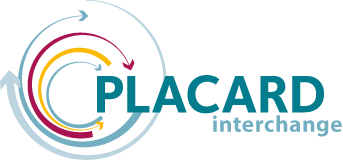Our workshop brought together policymakers and networks from across Europe to consider how to better integrate climate change adaptation (CCA) and disaster risk reduction (DRR) in both policy and practice. Against the backdrop of the Paris Agreement on climate change, Sendai Framework for Disaster Risk Reduction (SFDRR) and the Sustainable Development Goals (SDGs), participants considered how to turn good words into meaningful action. Find out:
What we discussed…
We focused on priority actions to improve CCA & DRR connectivity, including the potential role of the PLACARD project. After an introduction to the programme, presentations from Virginia Murray (UNISDR) and Tom de Groeve (DRMKC/JRC) highlighted the need to improve connectivity between CCA & DRR in policy and practice. Emerging CCA & DRR work from the European Environment Agency was also presented. Specific sessions on the framing of CCA & DRR, terminology and use of language and narratives for action featured contributions from Craig Duncan (UNISDR), Bruno Haghebaert (Belgian Red Cross) and Denise Recheis (Climate Knowledge Brokers Group).
What we discovered…
Language matters!
- Analysis shows there are overlaps in terms of terminology, yet no governance of terminology or consistency of use.
- While ideally we should have comparable and consistent terminology across the two communities, a good starting point would be to better understand how the same terms can have different meanings.
We’re not that different…
- Participants found there is “not so much difference between CCA & DRR” and that there is real value in improving integration. “CCA & DRR are very similar at policy level in terms of factors to consider”.
- Often differences relate to governance, funding streams and language, rather than fundamental differences in action on the ground.
- Ultimately, approaches, language and framings will only be perfectly aligned if we have a single comprehensive global agreement – but we aren’t seeking perfection or homogenisation – what is needed is improved harmonisation!
Add value to what we already have
- Existing initiatives and platforms present opportunities to focus efforts to harmonise CCA & DRR – feeding lessons and ideas into existing communities.
- Consider indicators – new tracking mechanisms are emerging for SFDRR, Paris Agreement and the SDGs – how can countries track progress on these related issues?
- Impact of CCA & DRR – is what we are doing effective? Currently, M&E lines are institutional and not horizontal, so limiting the scope for learning.
Focus on practical actions, improve harmonisation
“Learning about the challenges, priorities and opportunities of CCA & DRR in science, policy and for knowledge brokers was really useful.”
- There’s a long history of discussing overlaps, and the reasons for the ‘failed marriage’ between CCA & DRR have been documented.
- We now need to focus on interesting possibilities for practical actions to encourage improved working.
- Integrating CCA & DRR will take multiple approaches.
- What can be learnt about the inclusion of DRR in NAPs – what has been learned from how well that worked in Germany, for example?
Align narratives
- Different narratives are used by different groups in CCA & DRR; how can these narratives be integrated and made more effective?
- At a local level, CCA & DRR often require similar actions, therefore can trusted actors convey common narratives that combine CCA & DRR?
- Downscaling data could be linked to narratives, e.g. visualisation of potential harm combined with concrete actions to make a coherent and consistent case of CCA & DRR action.
How can PLACARD help?
- Produce a taxonomy of narratives describing which narratives work best, why and for whom.
- Develop an ontology of the most important CCA & DRR terms used by both communities and how these are defined and applied.
- Provide guidelines on how to read the Sendai framework through ‘CCA eyes.’
- Build on emerging terminology work by UNISDR and REEEP – translate this into an easy tool for practitioners, e.g. extending the Climate Tagger with CCA & DRR terms.
- Add value to existing initiatives through practical inputs – especially DRMKC, weADAPT, Climate-ADAPT and PreventionWeb.
- Provide a means to guide users through existing online platforms
- Consider Europe’s outermost regions.
- Take forward the application of SREX lessons.
- Share/co-host data around disaster losses.
- Map on-going success stories at different levels.
- Share information on diagnosing hotspots to reduce vulnerability.
- Identify champions.
- Develop a strategy for peer learning between cities with similar conditions.
- Education and capacity building: PLACARD could develop training modules e.g. a MOOC, for critical decision-making groups.
- Utilise existing games, or create new games that promote the linkages on CCA & DRR.


